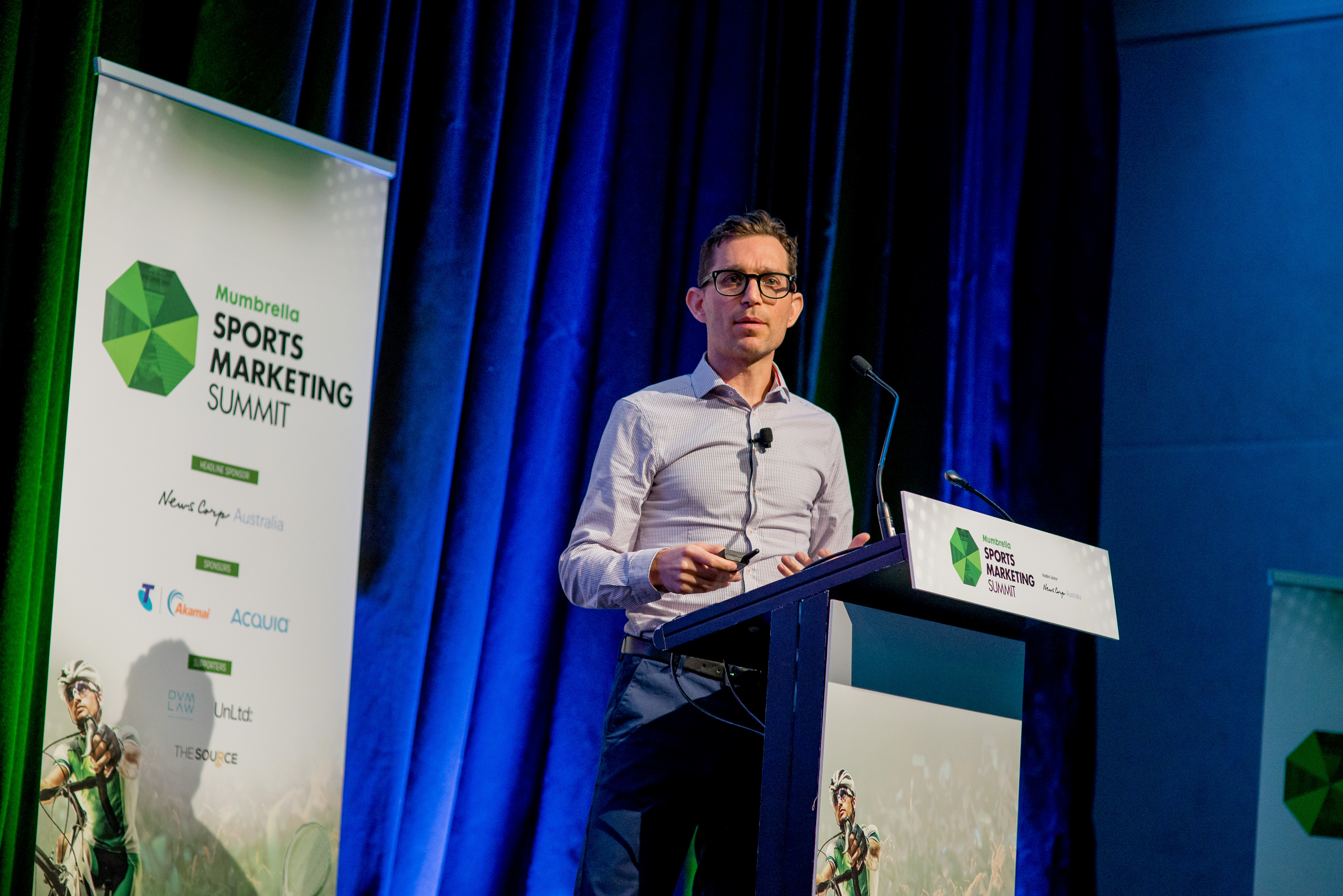AFL marketer Julian Dunne on the battle to overhaul sport’s branding
The AFL’s head of marketing has spoken of the sport’s challenges in shifting its advertising away from “great music and Chris Hemsworth” to something more reflective of the “modern Australian”.
Despite internal support, Julian Dunne said he faced some wider opposition around the recent ‘Don’t Believe in Never’ campaign – which featured stories from a Muslim woman and a former refugee – from those who feared the new messaging could alienate the sport’s established fanbase.

Dunne: ‘We still have a big job to do to make sure the brand is relevant for different, diverse audiences that haven’t grown up with the game’
Speaking during Mumbrella Sports Marketing Summit, Dunne said there was a “darkness” to the Clemenger BBDO-made campaign, but that it was a necessary step towards growing the AFL fanbase over the long term.

